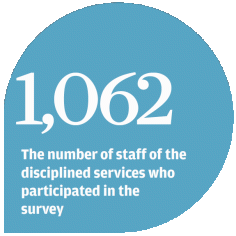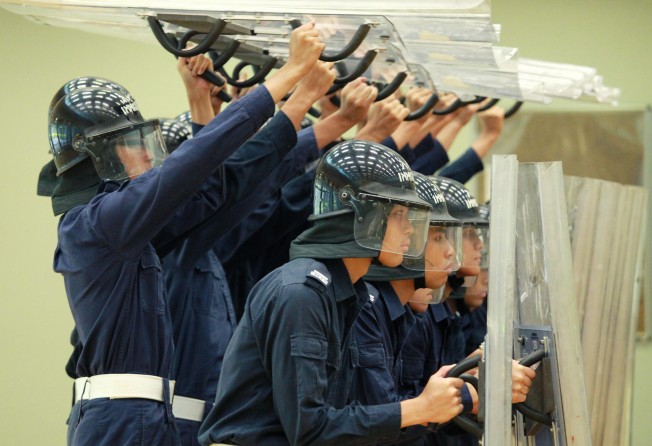
Hong Kong disciplined services staff want retirement age raised to 60
Overwhelming majority of those surveyed want choice of staying in uniform after 55; staff feel burden of keeping family while waiting for MPF

A survey of Hong Kong disciplined services staff has found overwhelming support for raising the retirement age from the current 55 to 60.

The disclosure comes days after the government launched a public consultation on ways to solve the problem of the shrinking workforce.
A later retirement age could be part of the solution.
The research report was put together by the Government Disciplined Services General Union, which represents the thousands of disciplined services staff outside the police force. It calls for the retirement age to be raised in stages from January 1, 2015 so that by 2025 it would be 60.
In the survey of 1,062 disciplined services union members between March and June, 96 per cent said current staff should be given the option to choose when to retire between the ages of 55 and 60, plus the opportunity to enter contractual employment after retirement.
Staff associations representing the city's 28,000 police officers have already voiced their support for a later retirement age and this latest report is likely to increase the pressure on the government to consider the position of disciplined services staff.
The Government Disciplined Services General Union, which represents staff associations from customs, immigration, correctional services, fire services and the government flying service, says the gradual approach will balance the interests of civil servants employed under different pension schemes and ensure smooth internal succession.
Joe Chan Cho-kwong, chairman of the Junior Police Officers' Association, said his group agreed with the proposal on setting the new retirement age at 60, though exactly how to implement the change would require further study.
In June, the police association had also suggested that the retirement age should be extended to 60, while giving officers the option to enter contractual employment after turning 55. Chan said that would be more "staff-friendly" than specifying a particular age for compulsory retirement.
Lawmakers have expressed their concerns over the possible effect such a move might have on the promotion chances of younger civil servants.
But Chan Kin-lun from the Fire Services mobilising and control group dismissed them.
"We too have that extra five years," said Chan, 27, adding: "Working longer will also lessen our financial burden after retirement as our generation tends to get married late and our children will likely to still be in school if we are to graduate at 55."
Setting 60 as the age of retirement could also relieve many retired officers of the economic pressure during the five years before they can collect the whole MPF pension, Chan said.
A Civil Service Bureau spokesman confirmed it had received the union's report.